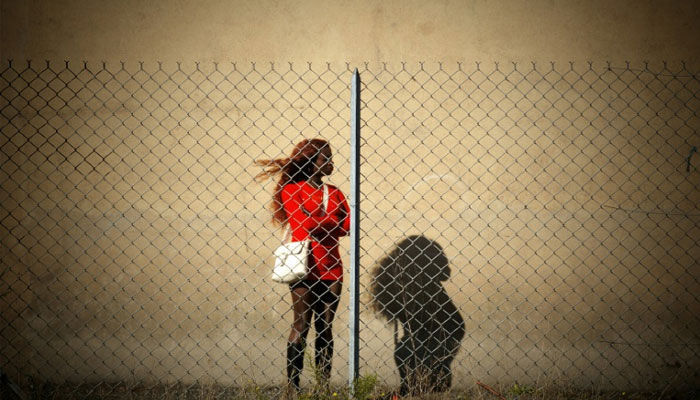Betrayed, beaten, raped: the hell of Nigerian prostitutes in France
In the streets of the big cities of France, they are today the most numerous, in front of the girls of the East or the Chinese women, according to the authorities, and practice the lowest tariffs, starting from 10 euros the pass.
"I thought once in France, I was going to study, that hell was going to stop," says Joy, forced to prostitute herself to pay for her exile. Like her, hundreds of young Nigerians looking for a better life end up, after a traumatic trip, under the guise of a prostitution ring.
In the streets of the big cities of France, they are today the most numerous, in front of the girls of the East or the Chinese women, according to the authorities, and practice the lowest tariffs, starting from 10 euros the pass.
Most come from Italy, where they spent up to several years. "Nigerian networks are moving to France from Italy," confirms Didier Leschi, director general of the French Office of Immigration and Integration (Ofii). The fight against the mafia Nigerian committed by the Italian government has forced these networks to move to the south-east of the Hexagon.
In Marseille, where the share of Nigerian prostitutes has increased significantly in recent years, Michel Martinez, head of the brigade of repression of procuring (BRP), has come to know these networks "very organized": "In the country, girls are recruited by a + ma'am +, often a former prostitute, who supervises them and puts them to work, while the men take care of the passage, the logistics, to recover the money ".
"Invisibles"
Their journey - Niger, Libya and then Italy in general - lasts 2-3 months "during which they are deprived of food, raped, and they start to work because they have no money to pay for the trip". The price of the exodus: 50,000 euros on average, which they must repay by prostituting themselves.
Happy, who today has a new life in Marseille, has for example left behind two children in Nigeria to flee a violent husband. Forced to prostitute herself by her smugglers to pay for her trip to Europe, she finally fled Italy, where she was "persecuted by the police, the men," she told AFP, and crosses the Alps, 8 months pregnant. "It was terrible," she describes in English, "I had to climb, jump, run with my big belly, but I got there and saved my baby."
The pimps are very difficult to "get stuck", also points Michel Martinez: "They are very little visible people: they do not use the phone, are very mobile, change wig, address, number ... Sometimes the + madames + even exchanged the girls to blur the tracks ".
To break down the networks, the police rely on the associations, which can convince the girls to lodge a complaint. An "extremely delicate" approach according to Lionel Arsiquaud, a specialist educator at the Amicale du Nid in Marseille, who has seen "exploding" the arrivals of Nigerians, who now represent 80% of its audience. "It is even more difficult that they do not feel victims of human trafficking", develops this social worker.
"They are afraid of everything, they are invisible," adds Elisabeth Moiron-Braud, Secretary General of the Interministerial Mission for the Protection of Women against Violence and the Fight Against Trafficking in Human Beings (Miprof). "When they arrive in France, they have a heavy liability, they were treated like cattle in Libya".
Joy, who had been daring to study in France, was recruited in Benin City, a hub of traffic of all kinds. "In my country, we do not talk about prostitution, we say that we will + be sponsored the trip +," she said. Ten years ago, this hairdresser "very poor", who struggles to eat every day, trusts a man who says he wants to help.
In her luggage, she takes all the books she has for her future studies. The trip lasts one year, during which her "sponsor", who had recruited her, forces her to prostitute herself. "I slept with Arab men, often armed, I was so beaten and raped that I could not walk or sit, but I was sure that in France everything would be arranged," says the young woman with long curly hair. When she tells her companions in misery that she is going to study, "they make fun of her".
Voodoo ritual
Arriving in France, she understands that her ordeal is just beginning: "The + ma + network told me that I owed him 40,000 euros and that for that I had to go on the sidewalk.
For Lionel Arsiquaud, networks are all the less difficult to keep girls under their control because they are people "conditioned, in their country, to be slaves of house or in the fields, not always to be paid for their work ".
Young girls, sometimes minor, from families "malevolent and abusive, who sometimes sell them to the smugglers and the + Ms. +". In general, says Célia Mistre, director of Amicale du Nid 13, "they want to stop because they are pregnant or because of the violence, not so much because of prostitution that they psychologically integrated as a weight to bear ".
A burden protected by the ritual of "juju", a voodoo ritual that binds girls until death to their "madam". Joy remembers a "scary ceremony, where I had to give blood, hair, even a tooth". When she finds the strength to leave the network in 2015, her "madam" calls her parents to Nigeria to threaten them with activating "juju" against them.
Today mother of two little girls born in Marseille, Joy tries to obtain papers to work legally in France. Since she lodged a complaint against her pimps, the thirty-year-old feels "like parentheses", waiting for a new life.
-
Japan: PM Takaichi flags China ‘Coercion,’ pledges defence security overhaul
-
Angorie Rice spills the beans on major details from season 2 of ' The Last Thing He Told Me'
-
Teacher arrested after confessing to cocaine use during classes
-
Milo Ventimiglia recalls first meeting with Arielle Kebbel on the sets of 'Gilmore Girls' amid new project
-
Leading astrophysicist shot dead at southern California home
-
Will Savannah Guthrie ever return to 'Today' show? Here's what insiders predict
-
Amazon can be sued over sodium nitrite suicide cases, US court rules
-
Patrick Dempsey reveals Eric Dane's condition in final days before death












